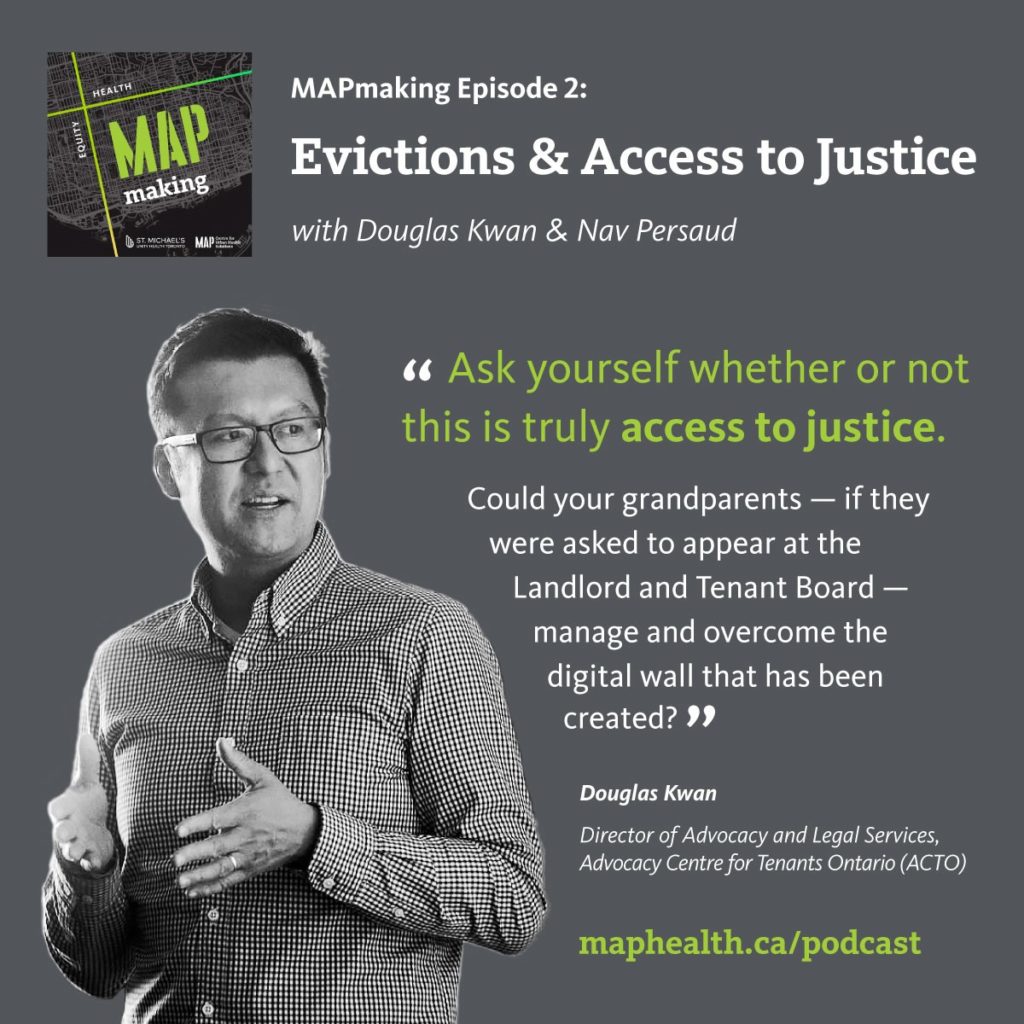Op-ed in the Toronto Star, Hamilton Spectator by Dr. Nav Persaud and Dr. Stephen Hwang

As malls and coffee shops reopened after a long COVID winter, the doors have remained locked on an institution that keeps people housed: Ontario’s Landlord and Tenant Board.
The board has not returned to in-person hearings. Tenants trying to stave off eviction no longer have access to supports that were available in person, or even the reliability of being able to make their case in person.
Imagine calling into a hearing to decide whether you will be able to keep your apartment, and then getting disconnected. The stakes are extremely high for tenants appearing before the board — decisions can mean the difference between sleeping in your own bed, and scanning a list of emergency shelters to find out which ones take kids. Landlords may be seeking to secure their incomes, but they are not at risk of being on the street when a hearing concludes.
Virtual attendance can tilt hearings toward landlords. Tenants often have poorer access to high-speed internet connections and thus join by phone, especially when they need to be logged on for hours waiting for their hearing. In contrast, landlords are able to see and be seen by board staff and members. Prior to COVID, tenants were supported by board staff when they arrived at hearings, and had access to duty counsel or lawyers on site who provided timely advice and support. Tenants could easily submit pictures of mouldy or poorly maintained basements to support their claims.

